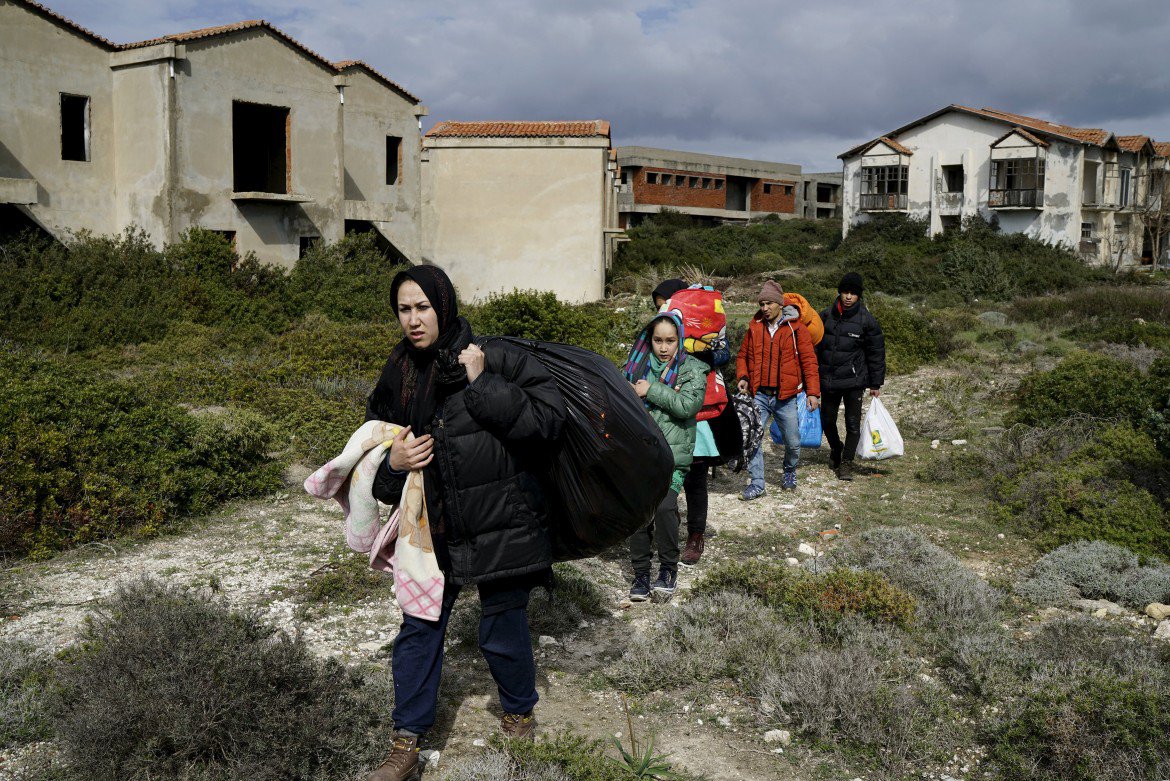Basmane is an old residential district of Izmir, Turkey’s third largest city, bathed by the waters of the Aegean Sea. Here, among the steep alleys in which barber shops, restaurants and smoky tea rooms follow one another, 100 meters from the railway terminal and the local police station, is the nodal center of human trafficking, a waypoint to the nearby islands of Lesbos and Chios, then to Europe.
To get an idea, Basmane is similar to a financial stock exchange, but instead of stocks and shares, the value of human life is negotiated. This question is asked by dozens, hundreds of thousands of refugees, mainly Syrians, fleeing war and persecution, eager to reach the other side.
All-inclusive packages
The offer is in the hands of traffickers, who can provide all-inclusive packages that include protection, internal transportation, accommodation, food and, finally, passage to the Aegean islands.
“Depending on the season, the price for the crossing on an inflatable raft varies from €800 to €1,600,” explains Jameh, 31, a Syrian and former employee of the United Nations in Damascus. I met him at a diner run by Syrians, which outside is dominated by a red sign in Arabic. Thousands of Syrians live in the area. “It is a great opportunity for businesses like mine,” the Turkish owner whispers.
Jameh had a job and a good position in the Syrian capital, but everything fell apart with the civil war. He was drafted into Bashar al-Assad’s army but deserted. “I could not bring myself to fight and point my weapon against a human being.” Now the job outlook for a traitor to the regime is an illegal, underpaid job in Istanbul, where he will relocate soon with his wife because “it is easier there, there are more factories.”
It’s a different outlook for four young people, also Syrian, whom I met along the Fevzi Pasha Boulevard, the avenue that connects the shadows of Basmane to the gleaming kordon, the boardwalk dotted with trendy clubs. They carry soccer bags filled with their few possessions, one of them holding on his head a carefully tied trash bag, to avoid getting the contents wet. They are directed to the square in front of the railway station, to the restaurants where the last meal is eaten, before boarding a van to the coastal towns.
Despite the agreement between the E.U. and Turkey to return refugees to Turkey, the smuggling business has not been killed, only slowed down. In the aftermath of March 20, the day the deal went into force, politicians said optimistically that the crossings would go down to zero. One does not need to be a seafarer to understand that the wind last week would make any attempt to pass impossible.
But if the winds, political or otherwise, improve, these four young men at Fevzi Pasha say they’ll resume their crossing. Traffickers are looking for customers, and the orange life jackets are still on display outside the shops.
Then there are the others, the regulars of the Izmir “stock exchange,” traders, pensioners, unemployed people who in recent years have seen an industry grow before their eyes, estimated between $3 billion and $6 billion. Many people in this town say these new entrepreneurs won’t stop because of an agreement: There’s too much money at stake.
Neighborhood poverty
In the residential area clinging on the slopes of Mount Pagus, above Basmane, tens of thousands of Syrians live crammed into old houses and apartments vacant for years and pay rents as if they were in a loft overlooking the Aegean Sea.
“The houses can be identified by the newly installed satellite dishes. Those are the ones who choose to remain, for now,” says a greengrocer pointing to the rooftops. During the day, these streets are deserted. “The Syrians come out after sunset, thousands,” said Fuat Gurgun, a Turkish-Albanian man who runs a leather goods shop in the neighborhood.
Refugees and Turks here share poverty and degradation. “Often there is only one worker in a family of 6-8 people, illegal and underpaid to boot,” says Chris Dowling, 28, of Venice, Italy, who has been in Turkey since 2014. For the last three months, he has volunteered with Kapilar, an organization engaged in the integration of Kurdish minorities in the Southeast, the Roma and the settled Syrian community.
Despite the fact that the Turkish government has promoted giving Syrians an identity card that recognizes their permanent guest status and access to services and jobs, the refugees are still being exploited.
“They work under the table, 12 hours a day, six days a week, especially in the textile sector,” Dowling said. “But they only receive about 800 Turkish liras per month, compared to the minimum salary of 1,300 liras.” It’s not enough if you have to pay 400 liras for rent in a musty basement and the rest is to feed six family members.
But it gets worse
For many, the situation is desperate. Some Syrian girls are forced to sell themselves on the streets at much lower prices than the brothels operating next to the railway. That’s one extreme option occasionally necessary to collect the sum requested by the traffickers to cross the Aegean Sea.
Others work for the traffickers, procuring clients for a commission. There are some who have even sold kidneys on the organ black market. One father chose that path in recent months to ensure his family a place on a boat. After landing in Chios, the man was treated by a German doctor.
Despite the fact that everything at Basmane indicates the resumption of crossings despite the agreement in Brussels, it will take time to assign any blame and praise. A concrete fact was the increase of police forces deployed along the coast, like the Turkish and Greek patrol boats on the Aegean waters.
Consequently, the traffickers are more prudent, but their redesigned business is already clear: The routes are longer, passing to Italy or Athens. They’re more costly and dangerous. And the boats are larger. After all, the market hasn’t changed, and the refugees and migrants keep paying the bill.

